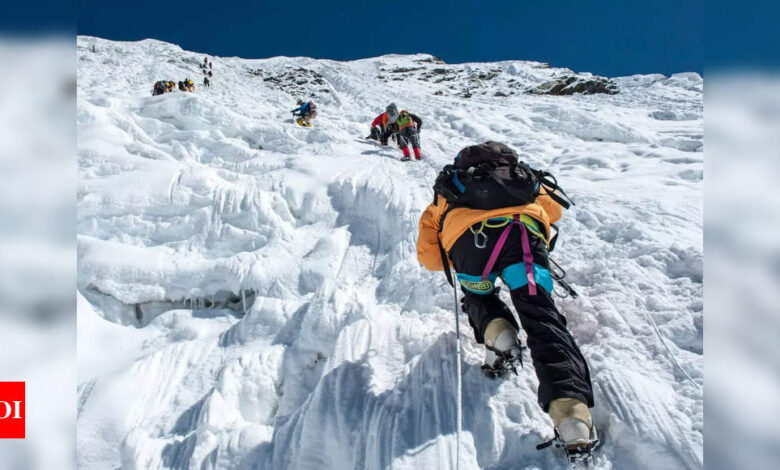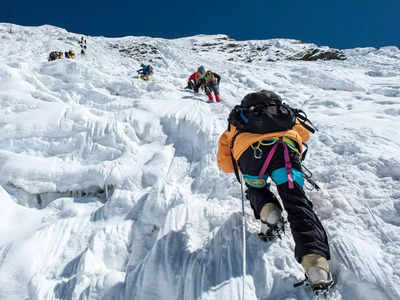Nepal hikes permit fees for Mt Everest to $15,000 amid growing garbage concerns

Nepal has announced a 36 per cent increase in permit fees for climbing Mount Everest, raising the total amount from $11,000 to $15,000. This decision comes along with a set of strict new measures aimed at addressing garbage pollution at the world’s highest peak.
The new regulations, which include increased royalties for climbers and mandatory waste management protocols, will come into effect from September 1 later this year. The last revision to Everest climbing fees was implemented in 2015.
Season wise distinction
Under the updated rules, the fee for foreign climbers attempting Everest via the popular southern route during the spring season (March-May) will increase from $11,000 to $15,000 per person.
For the autumn season (September-November), fees will rise from $5,500 to $7,500.
Meanwhile, winter (December-February) and monsoon (June-August) permits will cost $3,750, up from $2,750.
The decision has also impacted Nepali climbers, with their autumn royalty fees doubling from NPR 75,000 to NPR 150,000.
The validity of climbing permits has also been shortened from 75 days to 55 days, a move aimed at better managing expeditions, as per the Kathmandu Post. However, expeditions booked for spring 2025 will not be affected.
Tackling waste on the snow capped peaks
To combat the growing problem of pollution, climbers will now be required to bring their human waste back to base camp using biodegradable bags for proper disposal. While toilet facilities exist at base camps, higher camps often lack such infrastructure, and unsustainable practices, such as digging pits or leaving waste behind, have led to significant environmental damage.
The revised rules also prohibit climbers from bringing items not listed in their permit documentation issued by the department of tourism. This is part of a broader initiative to reduce waste, which includes efforts by local authorities to enforce the use of biodegradable waste bags for peaks above 8,000 metres.
During last year’s climbing season, nearly 2,000 people gathered at Everest Base Camp, with 421 permits issued to fee-paying climbers. The season saw around 600 successful summits and an estimated 100 tonnes of waste was generated.
During the last spring season, the local government under Khumbhu Pasand Lhamu rural municipality enforced the use of biodegradable waste bags and ended up selling 1,700 bags. This move has now been mandated for climbers scaling peaks that are more than 8,000 meters of height.
Indu Ghimire, a joint secretary at Nepal’s tourism ministry, emphasised the need for better waste management, enhanced safety for high-altitude workers, and increased government revenue as key goals of the new policy.
She further added that the new regulations would be concentrating on garbage management, improving social security for high-altitude workers and boosting government revenue.
https://static.toiimg.com/thumb/msid-117515751,width-1070,height-580,imgsize-121426,resizemode-75,overlay-toi_sw,pt-32,y_pad-40/photo.jpg
2025-01-24 02:55:15





